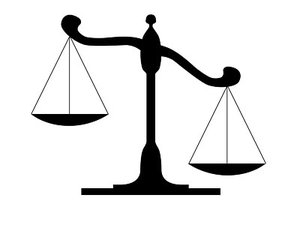Supreme Court Verdict
|
Court Record (Verdict) |
|
|
Case Number |
Heisei 23 (O) No.1204 Heisei 23 (Uke) No.1360 |
|
Date of Verdict |
Heisei 23/10/13 (Oct 13th, 2011) |
|
Court |
Supreme Court of Japan – Courtroom 1 |
|
Chief Justice Judges |
Tomoyuki Yokoda Koji Miyagawa Ryuko Sakurai Seishi Kanatsuki Yu Shiroki |
|
Parties Involved |
As outlined in Involved Parties Record appended |
|
Original Verdict |
Tokyo High Court – Case Number Heisei 21 (Ne) No.4966 (Verdict: Heisei 23/2/7 (Feb 7th, 2011) |
|
The judges’ unanimous decision is as follows: Clause 1: Principle Statement (1) The appeal in this case is dismissed (2) The appeal in this case will not proceed (3) Appeal fees and application fees will be the responsibility of the appellant
Clause 2: Grounds (1) Regarding the Appeal Against Constitutional Infringement In civil cases grounds of appeal to the Supreme Court are limited to, and are only acceptable when they come under Civil Act 312 Section 1 or 2, however, despite the claim being made against an infringement of the constitution, the actual content of the appeal is stating a claim against “error in fact” and mere “statutorily infringement”, and therefore, clearly does not prescribe to the clauses outlined above. (2) Regarding the Appeal Against Judicial Proceeding Infringement Based on the reasons in the appeal, this case does not warrant recognition under Civil Act 318 Section 1.
Dated: Heisei 23/10/1 (Oct 13th, 2011) Supreme Court of Japan – Courtroom 1 Court Secretary: Shunichi Tsuruoka |
|
Top of Page
Involved Parties Record
Appellant of Final Appeal (Claimant):
Wayne Michael Douglas
Appellee of Final Appeal (Defendant):
YI
Appellee of Final Appeal (Defendant):
X X
Respective Case Representative Lawyer:
MK and Associates
Top of Page
My Comments
Upon contacting the court secretary and enquiring about whether disallowing a key witness the opportunity to testify forms an infringement against the constitution, the answer was "whether or not it does would be determined at the judge’s discretion".

Justice or Not?
- I think the ultimate discrepancy in the High Court Verdict is that the Judge failed to rule out the fact I was dependent in terms of the DSM-IV-TR (worldwide recognized diagnostic standard) which formed the overall basis for the entire case.
- Although the Judge addressed two of the criteria in tolerance (criteria 1) and withdrawal (criteria 2), albeit without any direct reference to the DSM-IV-TR itself, he completely failed to address the other three that were being claimed – effectively leaving them standing.

The primary language of this website is English. Japanese appears as translations only (except for some original court documents).
These translations have been done by many different translators including me. Therefore, there are differences in quality and styles.
Please understand that I am not native Japanese and subsequently there are parts that may sound unnatural in Japanese.
“If any drug over time is going to just rob you of your identity [leading to] long, long term disaster, it has to be benzodiazepines.”

Dr John Marsden,
Institute of Psychiatry, London
November 1, 2007
“Benzos are responsible for more pain, unhappiness and damage than anything else in our society.”

Phil Woolas MP,
Deputy Leader of the House of Commons,
Oldham Chronicle, February 12, 2004
“The benzodiazepines are probably the most addictive drugs ever created and the vast army of enthusiastic doctors who prescribed these drugs by the tonne have created the world's largest drug addiction problem.”

The Drugs Myth, 1992
THE WRITING IS
ON THE WALL
for benzodiazepine use

Dr Andrew Byrne
Redfern NSW Australia
Benzodiazepine Dependence, 1997






